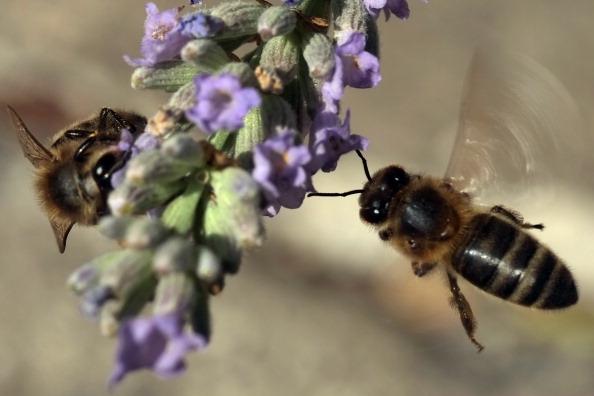While regular acupuncture involves inserting thin needles into the skin to treat illnesses, a much more painful type of treatment uses bee stings instead.
In China, a growing number of people are choosing bee sting therapy for their serious illnesses. In one session of bee acupuncture, dozens of stings may be administered to a patient, bee acupuncturist Wang Menglin told AFP.
“We hold the bee, put it on a point on the body, hold its head, and pinch it until the sting needle emerges,” Mr. Wang explained to AFP. “We’ve treated patients with dozens of diseases, from arthritis to cancer, all with positive results.”
Over 27,000 people have been treated with bee acupuncture, Wang added. The bees die during the process.
Treatment with bee stings has been used in traditional Chinese medicine for thousands of years. Preliminary studies by doctors of Western medicine suggest that it may assist with some conditions like arthritis and multiple sclerosis.
“Most the 40 ingredients in bee venom have been identified,” U.S. physician and apitherapist Dr. Lawrence Cohen told MedicineNet.com. “Mellitin, an anti-inflammatory agent found in the venom, is 100 times stronger than cortisone.”
However, up to five percent of people are allergic to bee stings, making this a potentially dangerous therapy. There is also no evidence that the treatment helps with serious illnesses like cancer.
“Although antitumor properties of some of the ingredients in bee products have been studied in the laboratory, there have been no clinical studies in humans showing that bee venom or other honeybee products are effective in preventing or treating cancer,” the American Cancer Society website states.
“Relying on this type of treatment alone and avoiding or delaying conventional medical care for cancer may have serious health consequences,” the website adds.




